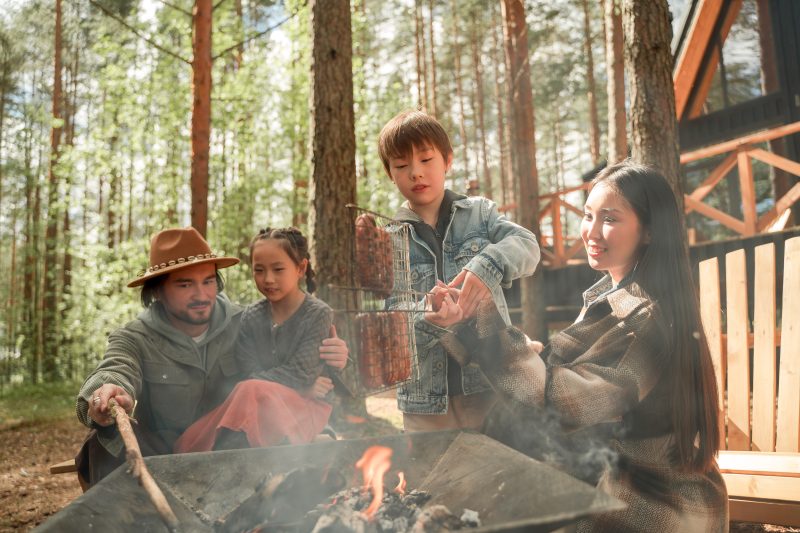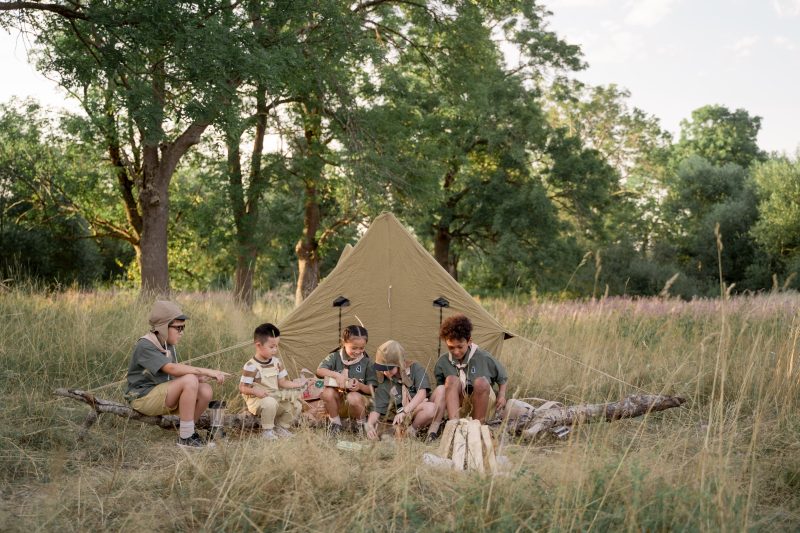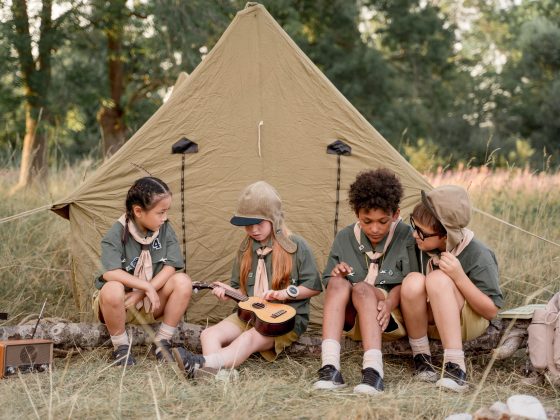To avid adventurers and outdoor enthusiasts, the first time they ever went camping is one of their favorite memories.
After all, there is nothing like being amid nature, having natural bodies of water to play in, sharing stories around a campfire, and sleeping under the stars or inside your tent. Understandably, when these intrepid individuals have kids of their own, it is quite inevitable for them to give them that same opportunity. This is all the more true as they wish to experience it with their children as well.
Unfortunately, this endeavor can be a hit or miss depending on how interested your little tots are. To avoid tantrums and abbreviated camping trips, it is best if you introduce the concept of camping to your children. Build their excitement, pique their interest and play on their curiosity before taking them out on their first camping trip. It may also help if you searched for campsites near Manila or beach camps in the Philippines with them prior to your trip to make them feel more involved in the planning. Also, you can make them even more thrilled about the upcoming trip by taking them on shopping trips in any of the camping stores in the Philippines.
Other than that, here are some of the tips to keep in mind when introducing camping to your children:
1.) Do a trial run
As an avid camper, there are several instances wherein you gave your camping gear and tents a trial run to make sure that they are ready for the trip. This is particularly true if the equipment is new or has not been used for a long while. As you are giving your gears a trial run, why not involve your kids and provide them with a glimpse of what a camping experience is like? Allow them to sleep in their tent overnight and ease them into the experience. As a result, this will make them feel more comfortable and a lot less concerned about being away from home. Turn your backyard into their trial campsite and show them what it is like to rough it out in the woods.
2.) Locate vital areas prior to the trip
There is a likely chance that you already have a campsite in mind for your camping excursion with your kids. However, it is highly recommended to know what places are nearby just in case of an emergency. Some of the areas you should be on the lookout for are the closest grocery stores, gas stations, and other necessities to ensure that you can quickly have access to should the need arise. This is particularly useful as if there is anything you may need during the trip, you would not have to travel far.
3.) Ensure their comfort
You are already used to roughing it out in the woods and great outdoors. That said, you are accustomed to any inconvenience that may occur when you are camping. However, your children are new to the experience, and to ease them into it, you have to provide them with an extra level of comfort. So, bring their favorite toys and bring pillows so that they will feel like they are sleeping on a makeshift bed. Alternatively, you can find them a sleeping pad that will prevent them from feeling uneven bumps on the ground.
4.) Bring entertainment with you
Kids are easily bored. While there may be limitless options for activities and fun outdoors, younger children may want familiar activities and entertainment they are used to at home. Pack their favorite toys and sources of entertainment—especially those that are suitable to bring outdoors. However, be careful not to let them get too absorbed with their screens. Instead, look for alternative fun such as super soaker guns, a game of soccer, or football. Also, you can give your children the opportunity to explore their surroundings and turn them into a fun activity.
5.) Make them interested in nature and wildlife
While nature is beautiful, not everyone has a natural fondness for the outdoors and wildlife. However, it can be slowly taught and developed. Do this by allowing your kids to enjoy the nearness of nature and giving them the opportunity to enjoy the uniqueness of the experience. Some of the things you can do that they are likely to enjoy is to take them bird watching or going on an exploration jaunt in the woods.
Alternatively, you can take them cycling, hiking on easy trail paths, and swimming in local water bodies. Just be sure that whatever activity you may choose to do, everyone is safe. Simply being amidst nature and enjoying its serenity will teach them to appreciate it. More importantly, they will be more inclined to respect the wildlife around them and grow to love camping gradually.




